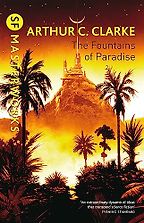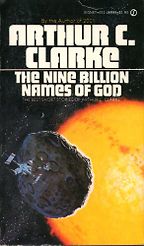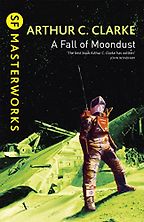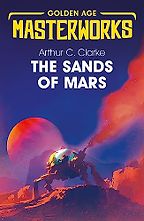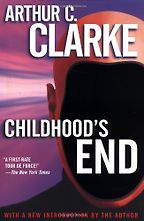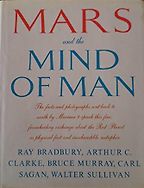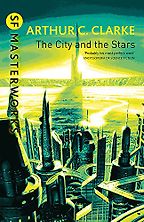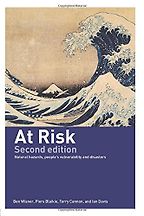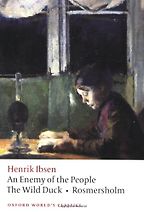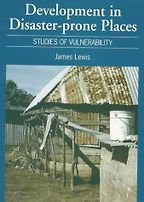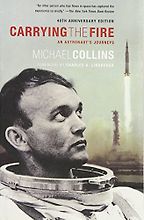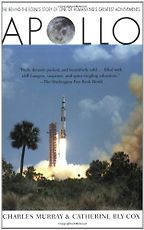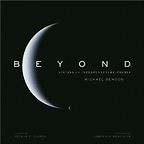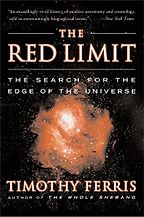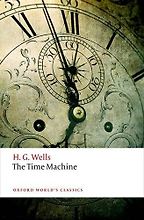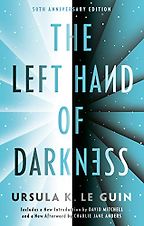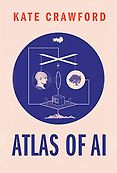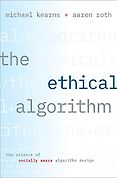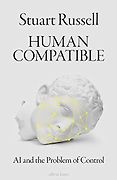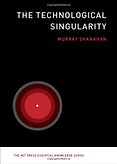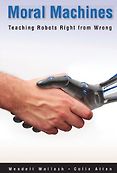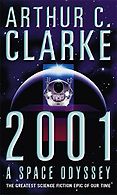
Books by Arthur C. Clarke
Sir Arthur Charles Clarke (16 December 1917 – 19 March 2008) was an English science fiction writer. He co-wrote the screenplay of his book 2001: A Space Odyssey, which is said to be one of the most influential films of all time.
In 1986 Arthur C Clarke provided a grant to fund the Arthur C. Clarke Award for the best science fiction novel published in the United Kingdom in the previous year.
“In The Fountains of Paradise we have the story of Vannevar Morgan, who is – again – the engineer figure. He’s hoping to build a tower that will link to a geostationary satellite for space travel – we’ll be able to zoom people up to the satellite in this kind of space elevator. I think it’s very literary, without being self-consciously literary.” Read more...
“This is a 1967 selection that Clarke himself put together; so these are his own personal favourites. A number of short stories lead on into the novels: ‘Guardian Angel’ becomes Childhood’s End, for example. And in The Nine Billion Names of God, we have ‘The Sentinel,’ which would be one of the stories that feed into 2001: A Space Odyssey. But ‘The Nine Billion Names of God’ is a delightful story itself.” Read more...
“So this was one of Clarke’s most acclaimed novels, in 1961, nominated for both the Hugo and Nebula Awards. It’s a classic ‘How do we get out of this disaster?’ scenario. Unlike Mars in The Sands of Mars, which is in the process of being colonised, here the moon has been colonised – and now we have space tourism.” Read more...
“The Sands of Mars is what Gary Westfahl calls a ‘cosmic engineer story’. We have a fledgling colony on Mars, established at some point towards the end of the 20th century. It’s primarily a scientific establishment, and they are slowly trying to make the place more habitable. It was Clarke’s first major novel.” Read more...
“The book looks at humanity’s future, but it starts off right at the dawn of humanity. That’s one of the things I really like about it because…developments in AI are now prompting us to ask questions about who we are as humans and where we’ve come from. One of the dangers from some of the current discussions about AI and ethics is that it would be easy to think that we can just look at where we are now. It’s too easy to think that we’re in a very good position and have made a lot of progress, so let’s just make that progress a bit further. But what we need to do is to keep in view a long historical sweep about where we’ve come from and who we are as humans….In the novel, the spaceship’s computer HAL 9000 ‘goes bad’. The way in which the story unfolds is a really powerful way of raising all the issues that are being talked about now in relation to AI. I find the book, especially by being set in space, produces a striking depiction of the central ethical questions about our relationship with AI.” Read more...
“Childhood’s End is Clarke’s best book by a long way. Alien “overlords” land on Earth and impose – by force – a benign and workable utopia. That sounds like a whole story there, but that’s only the start of Clarke’s compact, evocative novel. “ Read more...
Adam Roberts, Novelist
“It captures a unique moment in the history of human discovery. It’s a combination of the transcript of that panel discussion – which took place the day before the Mariner 9 became the first spacecraft to orbit Mars in 1971 – and essays that the panel participants wrote roughly one year later. The transcript and the essays book-end one of the most spectacular unveilings we’ve had in the history of solar system exploration. The book combines the scientific with the poetic. It includes a couple of poems by Ray Bradbury, whom I think of as the poet laureate of space” Read more...
The best books on Space Exploration
Andrew Chaikin, Science Writer
“This is the absolutely key text, the one where Clarke most describes his beliefs about the future and about society. It’s utopian fiction, and for Clarke this is the book he’s most emotionally invested in.” Read more...
Interviews where books by Arthur C. Clarke were recommended
The Best Books by Arthur C. Clarke, recommended by Paul March-Russell
Arthur C. Clarke is one of the biggest names in science fiction, epitomizing an era of space exploration and scientific optimism. Paul March-Russell, co-editor of the essay collection Rendezvous with Arthur C. Clarke, talks us through his work and argues that Clarke should be remembered for the nuances of his writing and his humility about man’s place in the awe-inspiring cosmos.
-

1
The City and the Stars
by Arthur C. Clarke -

2
At Risk
by Ben Wisner, Piers Blaikie & Terry Cannon and Ian Davis -

3
An Enemy of the People
by Henrik Ibsen -

4
Development in Disaster-Prone Places: Studies of Vulnerability
by James Lewis -

5
The Politics of Natural Disaster: The Case of the Sahel Drought
by Michael H Glantz (ed)
The best books on Disaster Diplomacy, recommended by Ilan Kelman
The best books on Disaster Diplomacy, recommended by Ilan Kelman
The perception that disasters are isolated events beyond our control is simply not true, says the disaster research expert Dr Ilan Kelman. We – governments and others – have a greater role in creating them than we wish to acknowledge.
The best books on Space Exploration, recommended by Andrew Chaikin
Space historian Andrew Chaikin tells us about five books that capture the thrill and achievement of our venturing into the great beyond. He picks the best books on space exploration.
Science Fiction Classics, recommended by Adam Roberts
The best sci-fi explores humanity’s anxieties and concerns and is, in some sense, about the future—but it doesn’t try to predict what’s to come. Literature professor and sci-fi writer Adam Roberts, author of The History of Science Fiction, recommends five classics of the genre.
-

1
Atlas of AI: Power, Politics, and the Planetary Costs of Artificial Intelligence
by Kate Crawford -

2
The Ethical Algorithm: The Science of Socially Aware Algorithm Design
by Aaron Roth & Michael Kearns -

3
Human Compatible: Artificial Intelligence and the Problem of Control
by Stuart Russell -

4
The Technological Singularity
by Murray Shanahan -

5
Moral Machines: Teaching Robots Right From Wrong
by Wendell Wallach and Colin Allen -

6
2001: A Space Odyssey
by Arthur C. Clarke
Ethics for Artificial Intelligence Books, recommended by Paula Boddington
Ethics for Artificial Intelligence Books, recommended by Paula Boddington
Advances in artificial intelligence pose a myriad of ethical questions, but the most incisive thinking on this subject says more about humans than it does about machines, says Paula Boddington, philosopher and author of a recent AI ethics textbook. We first spoke to Paula in 2017—a long time ago in a fast-moving field. This week we caught up with her to find out what’s happened since then and which new books have taken the conversation over ethics and AI further.
